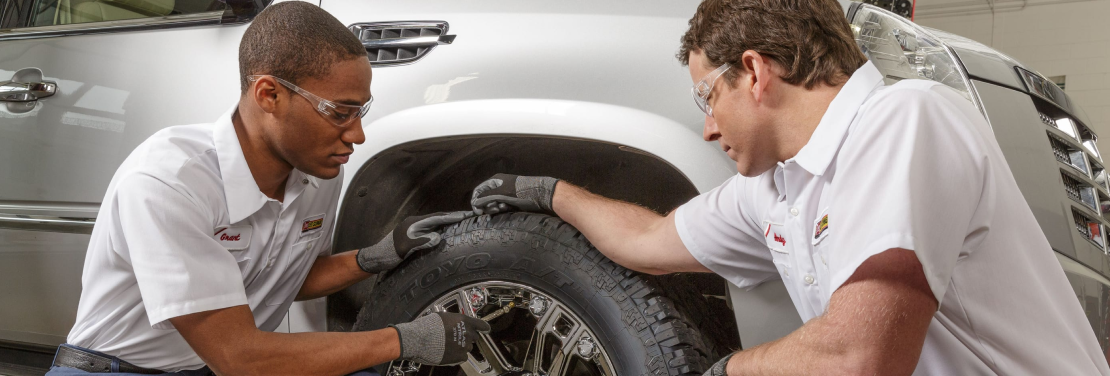Enjoy Big Cost Savings on Discount Tires Morris IL: Shop Now for Deals
Tire Solution: Comprehending Tire Stress Monitoring Solutions
Understanding Tire Pressure Tracking Systems (TPMS) is an essential element of preserving optimum automobile efficiency and safety when driving. With improvements in automobile modern technology, TPMS has actually come to be a standard function in contemporary vehicles, giving real-time information on tire stress levels. Digging deeper into the intricacies of TPMS, one can discover the different parts that make up this system and the relevance of each in making certain exact monitoring. From straight to indirect TPMS systems, the landscape of tire pressure monitoring is diverse, each with its special collection of factors to consider and advantages. Keep tuned to unwind the complexities of TPMS, from maintenance tips to the indisputable advantages of keeping your tires appropriately blew up. mopar tire service specials.

Significance of TPMS
The significance of Tire Pressure Surveillance Equipments (TPMS) depends on their capability to enhance automobile safety and security and performance through real-time monitoring of tire pressure levels. Maintaining the right tire stress is important for making certain optimal handling, braking, and general security of an automobile. TPMS provides drivers with prompt feedback on any overinflated or underinflated tires, enabling prompt adjustments to be made.
Parts of TPMS
Comprising numerous essential aspects, a Tire Pressure Tracking System (TPMS) functions as an innovative security attribute in modern vehicles. The major elements of a TPMS consist of sensors, a control component, and a caution indicator. Sensing units are normally located in the tire valve stem or connected to the wheel assembly, where they determine tire pressure and send information to the control module. The control module processes this details and sets off a warning if it identifies significantly reduced pressure in any of the tires. The caution indication, commonly a symbol on the dashboard, signals the motorist to examine the affected tire or tires. Some advanced TPMS versions also present the real tire pressure analyses for each tire, supplying drivers with real-time info to guarantee optimal tire performance and safety. By keeping an eye on tire stress continuously, TPMS helps protect against accidents, decreases tire wear, and enhances gas effectiveness, making it a crucial element for automobile safety and security and efficiency.
Kinds of TPMS

On the other hand, indirect TPMS relies upon the car's wheel speed sensing units to monitor tire pressure. This system detects underinflation by contrasting the rotational speeds of the wheels. Indirect TPMS is less costly than direct TPMS, as it makes use of existing sensors within the lorry.
While direct TPMS offers extra accurate analyses, indirect TPMS is simpler in style and usually calls for less upkeep. Both systems have their constraints and benefits, and the choice in between them frequently relies on factors such as expense, lorry make, and individual preference. Understanding the differences in between these 2 kinds of TPMS can assist lorry owners make notified choices regarding tire upkeep and safety.
TPMS Maintenance Tips
Efficient upkeep of TPMS is important for making sure optimal performance and security of your lorry. click here to read Frequently evaluating the TPMS sensing units for any kind of damage or rust is critical. Ensure that the sensors are complimentary and clean from debris that could interfere with their functioning. Additionally, it is a good idea to examine the sensing unit batteries occasionally and change them as required to assure exact readings. Conduct routine examine the tire stress degrees and contrast them with the TPMS analyses to ensure they are constant. If there are any type of inconsistencies, alter the system complying with the maker's standards. Throughout tire turning or substitute, make sure that the TPMS components are handled carefully to stop any potential damage. If the TPMS alerting light illuminates on the control panel, address the issue immediately by checking the tire stress and the general system for any kind of faults. By sticking to these maintenance pointers, you can prolong the life-span of your TPMS and improve the safety and security of your driving experience.
Advantages of Proper Tire Pressure
Keeping proper tire stress, as emphasized in TPMS Upkeep Tips, is vital for gaining the various advantages related to optimum tire stress degrees. Among the primary benefits of maintaining the proper tire pressure is enhanced gas performance. When tires are properly pumped up, there is much less moving resistance, resulting in much better gas economic climate. In addition, proper tire pressure makes sure also tire wear, extending the life expectancy of the tires and advertising more secure driving problems. With the appropriate tire stress, lorries also have better handling and traction, especially in negative weather condition conditions. This can boost total driving efficiency and safety and security for the vehicle driver and guests. Keeping optimal tire pressure can add to a smoother and extra comfy experience by lowering resonances and noise created by underinflated tires. To conclude, the visit the website advantages of appropriate tire stress exceed simply tire long life; they incorporate enhanced gas effectiveness, enhanced safety, better lorry efficiency, and general driving comfort.
Conclusion
Finally, comprehending tire stress tracking systems (TPMS) is essential for keeping ideal tire pressure and ensuring lorry safety. By acknowledging the relevance of TPMS, knowing with its parts, knowing the various types readily available, adhering to appropriate upkeep suggestions, and recognizing the advantages of maintaining appropriate tire stress, chauffeurs can boost their driving experience and prolong the lifespan useful link of their tires. Appropriate tire stress is key to efficient and safe automobile procedure.
